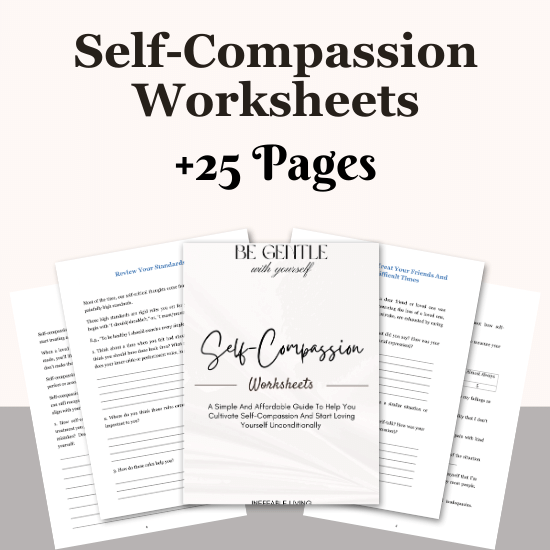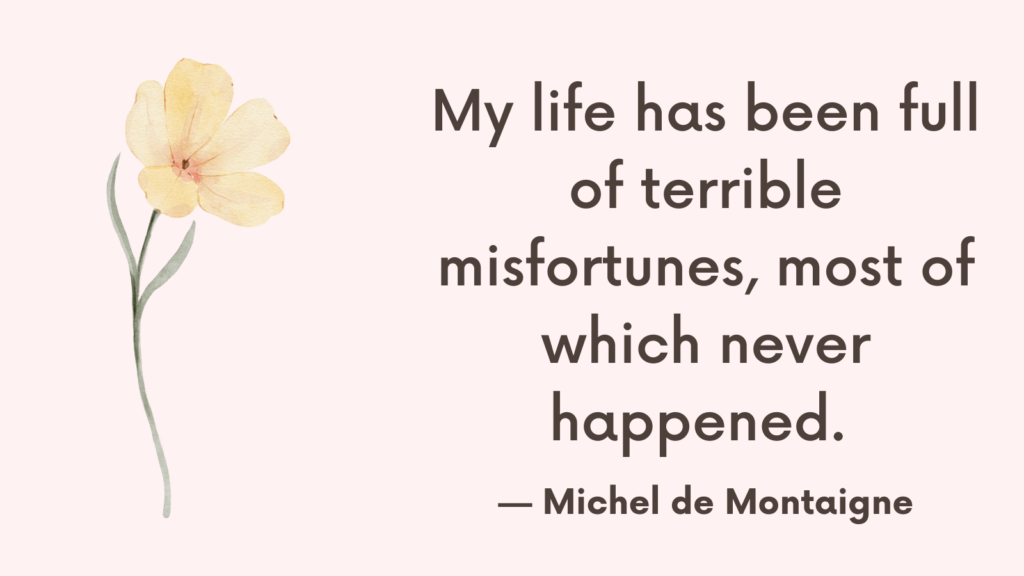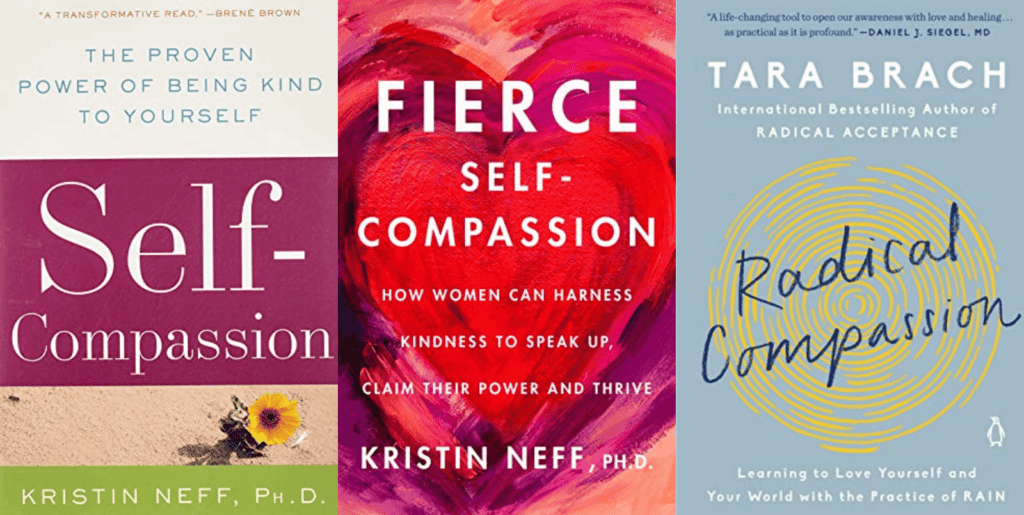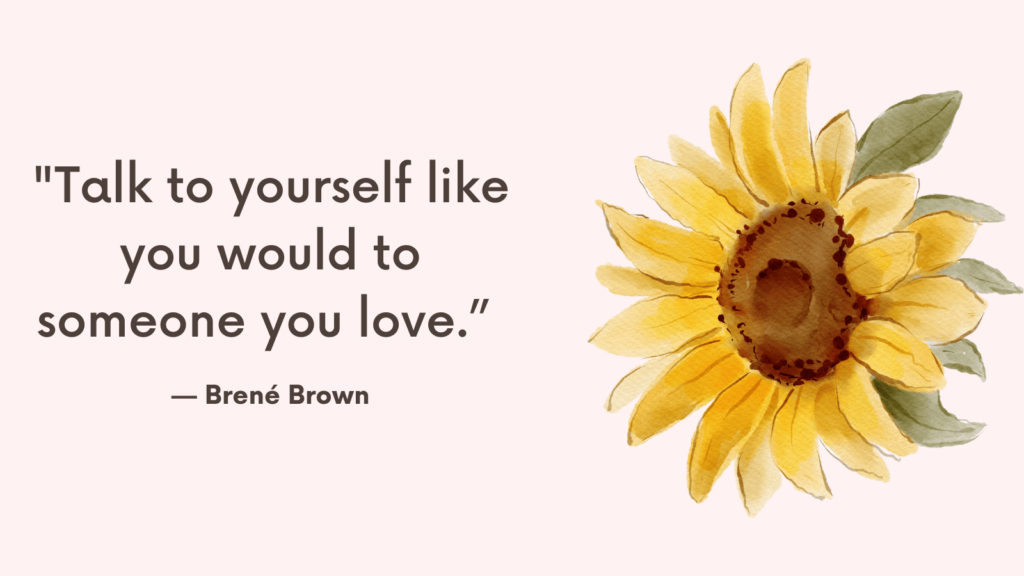After the holiday season, it’s common to feel a mix of emotions—guilt, regret, or disappointment over unmet expectations or overindulgences.
Practicing self-compassion helps you move forward with kindness, allowing you to embrace the new year without self-criticism.
Here are some practical ways to foster self-compassion after the holidays.
The Inner Critic That Gets Louder After the Holidays
Post-Holiday Blues or Something Deeper?
The decorations come down, the festive buzz fades, and suddenly — you’re left alone with your thoughts. For many, this is when the inner critic gets loud. “You spent too much.” “You didn’t do enough.” “You should be further along by now.” Sound familiar?
Why Does This Happen?
The holidays can act as a temporary distraction from our insecurities, but once the noise settles, self-judgment rushes in to fill the silence. We compare ourselves to highlight reels we saw all season and punish ourselves for not living up to them. That voice in your head isn’t truth — it’s fear dressed as motivation.
What the Inner Critic Might Be Saying:
- “You wasted your time.”
- “You gained weight.”
- “You’re starting the year behind.”
- “You don’t deserve to rest anymore.”
How to Practice Self-Compassion After the Holidays?
1. Acknowledge Your Feelings Without Judgment
It’s easy to get caught up in self-criticism, especially if you didn’t meet your holiday expectations or indulged more than planned. Recognizing and accepting these feelings without judgment helps you stay grounded in kindness.
– How to Practice: Take a moment to label and acknowledge your feelings, such as “I’m feeling disappointed,” without attaching blame or shame. Remind yourself that these emotions are natural and that everyone experiences them.
Related: Best 10 Books On Self Love And Healing
2. Reframe Negative Self-Talk
After the holidays, you may find yourself thinking things like “I shouldn’t have eaten so much” or “I wasted time.” Reframing these thoughts into supportive, encouraging statements can shift your mindset and foster self-compassion.
– How to Practice: When you notice negative self-talk, try countering it with more compassionate language. For example, replace “I shouldn’t have overindulged” with “I enjoyed my holiday meals, and I can get back to my usual routine now.”
Related: Best 18 Self Compassion Journal Prompts (+FREE Worksheets)
3. Treat Yourself as You Would a Friend
Imagine how you would respond if a friend came to you with similar feelings of guilt or regret after the holidays. Often, we offer others more compassion than we give ourselves.
– How to Practice: When self-criticism arises, pause and ask yourself, “What would I say to a friend who felt this way?” Let this perspective guide your words and actions toward yourself.
Related: Self-Compassion Quiz (+FREE Self-Compassion Resources)
4. Set Gentle, Intentional Goals
Instead of setting rigid New Year’s resolutions, focus on gentle, intentional goals that reflect what you want to cultivate. Setting small, compassionate goals helps you ease into the new year with a positive mindset.
– How to Practice: Choose one or two goals that align with your well-being and values, like “I want to practice gratitude” or “I’d like to spend more time outdoors.” Approach these goals as practices rather than pressures.
Related: How To Be Gentle With Yourself? Top 5 Ways To Practice Self-Compassion
5. Engage in Daily Mindfulness
Mindfulness allows you to observe your thoughts and emotions without judgment, helping you accept them and let them go. Practicing mindfulness regularly can foster a sense of calm and self-acceptance.
– How to Practice: Spend a few minutes each day focusing on your breath, observing any thoughts that arise without trying to change them. This practice helps you stay present and reminds you to be kind to yourself.
Related: Best 10 Self Compassion Books
6. Reflect on Positive Holiday Memories
If you find yourself dwelling on what didn’t go as planned, try focusing on what went well instead. Reflecting on positive moments reminds you that the holiday season was more than any one disappointment.
– How to Practice: Write down a few holiday highlights that made you happy, such as a special gathering, a favorite meal, or a joyful activity. Revisit these moments to remind yourself of the joy and connection you experienced.
Related: Top 45 Self Care Day Ideas at Home To Kickstart Your Self Care Ritual
7. Prioritize Rest and Self-Care
After the busyness of the holidays, taking time for rest and self-care is essential. Giving yourself permission to unwind and recharge is a powerful form of self-compassion.
– How to Practice: Schedule simple self-care activities each day, like reading, taking a bath, or enjoying a quiet cup of tea. Treat this time as essential for your well-being, just as you would prioritize it for someone you love.
Related: How to Use Atomic Habits for Mental Health?
8. Forgive Yourself for Imperfections
It’s natural to feel disappointed about unmet expectations or moments you wish you could change. Forgiving yourself for any perceived “mistakes” allows you to move forward with acceptance and kindness.
– How to Practice: When regrets arise, remind yourself that no one’s holiday is perfect and that these moments are part of being human. Offer yourself a gentle affirmation, such as “I did my best, and that’s enough.”
Related: Letting Go of Perfectionism: Best 20 Tips
9. Reaffirm Your Worth Beyond Holiday Choices
It’s easy to judge ourselves based on holiday habits, whether it’s overspending, eating more, or feeling disconnected. Reaffirming that your worth isn’t tied to these moments fosters self-compassion and self-acceptance.
– How to Practice: Remind yourself that your worth isn’t defined by your actions over a few weeks. Repeat affirmations like “I am enough just as I am” or “I am worthy of kindness” whenever self-criticism surfaces.
Related: Best 100 Self Care Affirmations To Honor Yourself
10. Focus on Progress, Not Perfection
Rather than aiming for perfect resolutions or instant changes, focus on gradual progress and celebrate small wins. Approaching self-improvement with a gentle mindset helps you grow without pressure.
– How to Practice: Celebrate each step you take toward your goals, no matter how small. By focusing on progress rather than perfection, you’ll cultivate a kinder, more sustainable approach to personal growth.
Related: Perfectionism vs Excellence

Conclusion
Practicing self-compassion after the holidays is about treating yourself with patience, kindness, and understanding.
By embracing these gentle practices, you can enter the new year with a mindset of self-acceptance, creating a foundation for growth, peace, and well-being.



